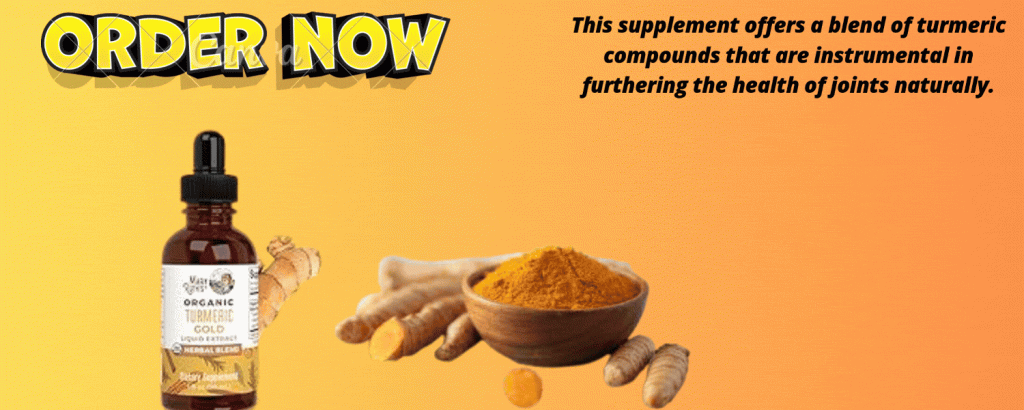Introduction to Liver Health
Liver Disease Basics Liver disease refers to any abnormal condition that affects the liver, and there are many ways to approach healing the liver. Located in the upper right-hand side of the abdomen, the liver is a powerful organ that does the work of detoxifying the body by regulating metabolic processes, convert fats and sugars into usable materials for the body and remove or metabolism toxins, generate bile, and proteins for blood clotting. While indeed capable of regenerating, the liver is otherwise marvelously durable, but not indestructible. The liver performs a multitude of critical functions for the body including synthesizing proteins, detoxification, and the storage of nutrients.Liver function can be impaired by; poor nutrition, alcoholism, infections and toxins. Small changes in the lifestyle include the adoption of the right diet, engaging in physical activity, and moderating one’s Alcohol intake would greatly benefit the liver. It also means understanding potential liver diseases such as fatty liver diseases, hepatitis, and cirrhosis are also potential. Healthy liver functioning is of vital importance since the liver is an essential body organ; by maintaining it, people promote good health.

How the Liver Works
The liver is located in the upper right abdomen, beneath the ribcage. Blood from the digestive system flows through the liver, where it undergoes filtration and processing. Key functions of the liver include:
- Detoxification: The liver neutralizes toxins from food, medications, and environmental pollutants. It converts harmful substances into water-soluble compounds that are excreted through urine or bile.
- Metabolism: The liver breaks down carbohydrates, fats, and proteins. It stores glucose as glycogen, releasing it when the body needs energy. It also helps synthesize essential proteins and cholesterol.
- Bile Production: The liver produces bile, which is stored in the gallbladder and released into the small intestine. Bile aids in the digestion and absorption of fats and fat-soluble vitamins.
- Storage and Regulation: The liver stores vitamins and minerals like iron and vitamin A and regulates blood clotting factors.

Supporting Liver Health
To keep the liver healthy:
- Eat a balanced diet: High-fiber, nutrient-rich foods support liver function, while excessive fats and sugars can cause damage.
- Stay hydrated: Water aids in detoxification.
- Limit alcohol and avoid toxins: Excessive alcohol and exposure to harmful chemicals can damage liver cells.
- Exercise regularly: Physical activity helps reduce fat buildup in the liver.
- Maintain a healthy weight: Obesity increases the risk of fatty liver disease.
Regular check-ups and early intervention for liver-related issues can prevent complications, ensuring this vital organ continues to function optimally.
How to Support Liver Health
The liver is a vital organ responsible for detoxifying the body, producing bile, and metabolizing nutrients. Maintaining liver health is crucial for overall well-being. Here’s how you can support and promote a healthy liver:
1. Adopt a Balanced Diet
A nutrient-rich diet is essential for liver health. Include plenty of fruits, vegetables, whole grains, and lean proteins. Foods like leafy greens, broccoli, garlic, and berries are rich in antioxidants, which help protect the liver from oxidative stress. Avoid processed foods, excessive sugar, and saturated fats, as they can lead to fatty liver disease.
2. Stay Hydrated
Drinking enough water helps the liver flush out toxins. Aim for at least 8 glasses of water per day to support its detoxifying functions.
3. Limit Alcohol Intake
Excessive alcohol consumption can damage liver cells, leading to conditions like alcoholic hepatitis or cirrhosis. If you drink, do so in moderation—no more than one drink per day for women and two for men.
4. Exercise Regularly
Physical activity helps maintain a healthy weight, reducing fat buildup in the liver. Aim for at least 150 minutes of moderate exercise per week, such as brisk walking or cycling.
5. Avoid Toxins
Minimize exposure to chemicals, such as pesticides and cleaning agents, by using protective gear and ensuring proper ventilation. These substances can stress the liver.
6. Use Medications Responsibly
Follow prescription guidelines and avoid overusing over-the-counter medications like acetaminophen, which can harm the liver in high doses.
7. Get Regular Checkups
Routine blood tests can monitor liver enzymes and detect potential issues early. Consult a healthcare provider if you experience symptoms like jaundice, fatigue, or abdominal pain.
By incorporating these habits into your lifestyle, you can ensure your liver remains healthy and functioning optimally.

Benefits of Supporting Liver Health
The liver plays a vital role in maintaining overall health and well-being. It is responsible for detoxification, digestion, nutrient metabolism, and hormone regulation. Supporting liver health can have a profound impact on various aspects of your physical and mental well-being. Below are some key benefits of maintaining a healthy liver:
1. Improved Detoxification
The liver filters toxins from the bloodstream, helping the body eliminate harmful substances such as alcohol, medications, and environmental pollutants. A healthy liver ensures efficient detoxification, reducing the risk of toxin buildup that can lead to fatigue, headaches, and other health issues.
2. Enhanced Digestion and Nutrient Absorption
The liver produces bile, a substance essential for breaking down fats and absorbing fat-soluble vitamins (A, D, E, and K). By supporting liver health, you can promote better digestion and maximize nutrient absorption, leading to improved energy levels and overall vitality.
3. Boosted Immunity
The liver plays a crucial role in producing immune factors and removing bacteria from the bloodstream. A well-functioning liver helps strengthen the immune system, making the body more resilient to infections and illnesses.
4. Hormonal Balance
The liver regulates hormones by metabolizing and eliminating excess or harmful hormones. Supporting liver health can help maintain hormonal balance, reducing symptoms like mood swings, irregular periods, and acne.
5. Increased Energy Levels
A healthy liver efficiently processes nutrients and stores glycogen, the body’s energy reserve. This leads to improved stamina and reduced fatigue.
6. Weight Management
A well-functioning liver supports fat metabolism and prevents excessive fat storage, aiding in healthy weight management.
Prioritizing liver health through a balanced diet, regular exercise, hydration, and minimizing toxin exposure can enhance overall well-being, ensuring the liver performs optimally for years to come.

liver health have a money-back guarantee?
you choose to purchase a product endorsed for liver health enhancement or protection, you will be glad to know that most of these products come with the money back guarantee depending on the product you are using and the producer’s policy. Despite this, most well established health supplement manufacturers offer a satisfaction or money-back guarantee on their product. This guarantee often runs a period of 30, 60 or 90 day that allows the user to try the product and then return it incase he or she is not satisfied.For example companies promoting liver health supplements provide their products as being capable of supporting detoxification, enhancing the liver function or enhancing ones well-being in one way or the other. If they support these claims, they will provide a money back policy as the extra assurance to the customers. However, it’s important to pay attention to the terms and conditions since some might mean that you have to produce a proof of purchase, you are only entitled to a refund for the remaining portions or shipping costs are not covered.Like any other product, there should be a clear policy regarding the liver health product on the company’s website or product’s label. Share the initiative or sign up for the service, and read more reviews and testimonials about other people’s experiences. If a money-back guarantee is important to you, check its terms before you purchase.If it is a critical feature for buying a product, a guarantee can help to calm down, but besides that, an extra trip to the doctor may be needed for a prescription.It’s my turns to hear from you if you have any corrections!
Why You Should Prioritize Liver Health
The liver is one of the most vital organs in the human body, responsible for over 500 essential functions. It acts as the body’s detoxifier, processing everything from medications and alcohol to environmental toxins and waste products. It also plays a critical role in digestion, metabolism, and nutrient storage. Yet, despite its importance, liver health often goes overlooked until problems arise.
A healthy liver ensures the efficient metabolism of fats, carbohydrates, and proteins. It stores essential vitamins and minerals, regulates blood sugar levels, and produces bile, a substance necessary for breaking down fats. Additionally, the liver helps maintain hormonal balance and supports a strong immune system. Neglecting liver health can lead to a range of issues, from mild fatigue and digestive troubles to severe conditions such as fatty liver disease, cirrhosis, or even liver failure.
Modern lifestyles often pose significant challenges to liver health. Diets high in processed foods, excessive alcohol consumption, and sedentary habits contribute to liver damage over time. Medications, environmental pollutants, and chronic stress can also strain the liver. Even individuals who avoid alcohol are not immune—non-alcoholic fatty liver disease (NAFLD) is a growing epidemic, affecting millions worldwide due to poor dietary and lifestyle choices.
Taking care of your liver involves adopting simple yet impactful habits. A balanced diet rich in fruits, vegetables, lean proteins, and healthy fats supports liver function. Regular exercise aids in maintaining a healthy weight and reducing fat buildup in the liver. Staying hydrated, limiting alcohol intake, and avoiding unnecessary medications or toxins further protect this vital organ.
Prioritizing liver health is an investment in overall well-being. By supporting this hardworking organ, you enhance energy levels, immunity, and long-term health, ensuring your body functions at its best.

Liver Health Conclusion?
Liver is an important aspect of health since it is responsible for the detoxification of the body, production of some proteins and digestion. Most of what a person eats should be complex carbohydrates, Fiber rich foods, vitamins, minerals, and lean protein while taking in moderate amounts of fats, sugars, and alcohol to support liver health. Adequate physical activity, staying adequately hydrated, and avoiding contact with toxic substances also help to maintain liver health.Evaluated and timely diagnosing of liver illnesses like hepatitis or fatty liver is a special fundamental step. Thus non-harmful activities such as taking large amounts of alcohol, using drugs and taking medication that is not prescribed to an individual are activities that U.S citizens should avoid to reduce their risks of getting liver illness. However, reducing risks in the liver disease and infections such as hepatitis A & B are relatively limited through vaccination and safe hygiene practices.Apart from diagnosis, prevention strategies on the other hand are effective to ensure the longevity of the liver and therefore general health. Some of the things that you do to your liver are a preparation for the future when your body will be weaker because you are taking care of your liver.
